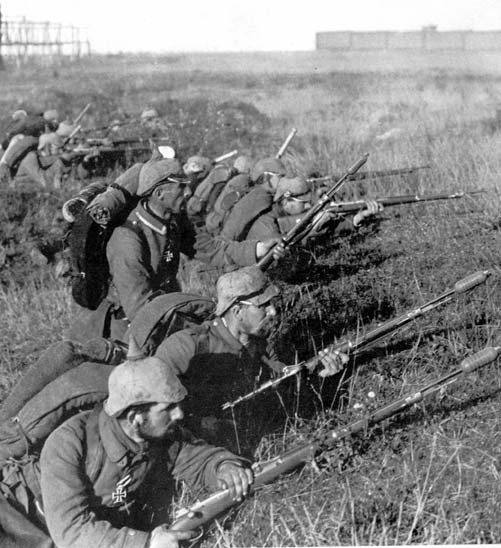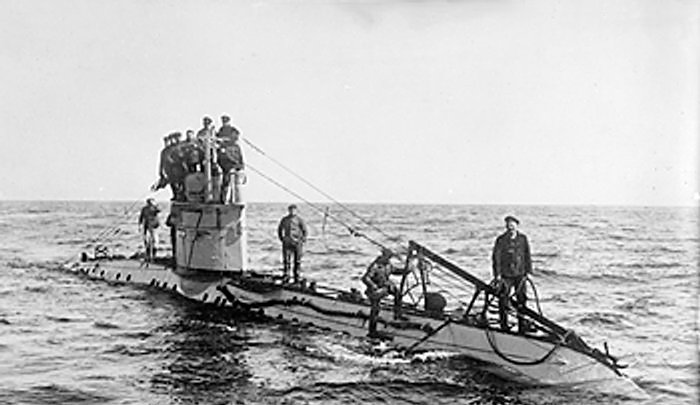‘Life in These Days Too Hideous to Write’
Special to The Great War Project
(13, 14, 15 January) Many in Britain and France are still hoping the war will end soon.
Many believe Germany is faltering, facing a debilitating stalemate on the Western Front, and a tightening naval embargo that is slowly strangling the German people.
But on January 15th precisely a century ago, a report is published in The Times in London, a dispatch from Stanley Washburn, its correspondent in Russia. It is far more pessimistic about the possibility of an early end to the war.
Washburn interviews German prisoners of war near Warsaw. His conclusion?
“The more one sees of the Germans, and these are far below the average in type, the more one begins to feel that…
…there is a long, long road ahead for the Allies before these determined people are broken.”
One soldier who writes about conditions on the Western Front where he is stationed is Corporal Adolph Hitler. “We are still in our old positions, and keep annoying the English and the French,” he writes in a letter. “The weather is miserable and we often spend days on end knee-deep in water and, what is more, under heavy fire. We are greatly looking forward to a brief respite.
“Let’s hope that soon afterwards, the whole front will start moving forward. Things can’t go on like this forever.”
They do go on it seems forever, with the suffering equal on both the German and British sides.
One British soldier writes in his diary…
“the greatest writer of the day cannot describe the wretchedness of the trenches…
– we exist for letters only…Our trenches, made by the French, were nothing but ditches full of liquid mud, no wire in front, no communication trenches….Bullets came through the parapet as though it had been butter.
Another Scottish soldier’s diary reads:
6, 7, 8, 9 January: Life in these days too hideous to write. Continuous rain and disappointment. Bitterly cold.
10 January: Impossible to cook anything. Mud, rain, sickness. Trenches washed away. Have abandoned my kilt and wear it as a cape.
13 January: Bitterly cold night. Freezing hard…Rubbed each other’s feet with oil. Could not lie down. Huddled ourselves in a blanket and prayed for morning.
The war at sea, between German and British warships, slowly intensifies. “On January 13th,” writes historian Martin Gilbert, “all but one of the crew on board the German submarine U-7 were drowned when their submarine was torpedoed, by mistake, by U-22,” one of their own. A third German sub, U-31 leaves its base in Germany on that day and disappears.
“It was assumed that it had struck a mine,” reports Gilbert.


